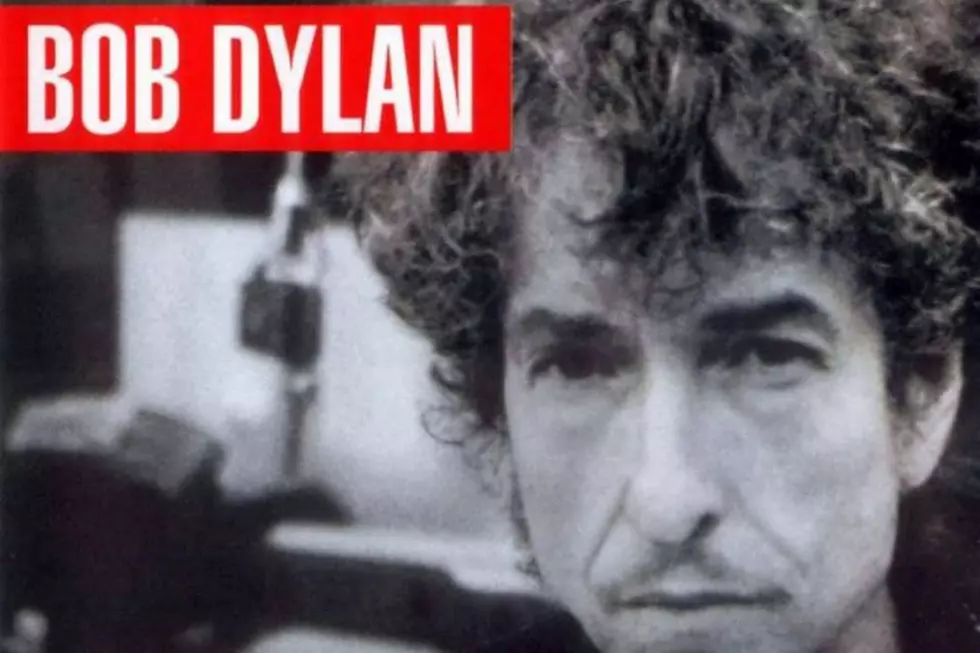
How Bob Dylan Extended a Late-Career Comeback on ‘Love and Theft’
Bob Dylan's comebacks through the years were hits and misses. Mostly misses.
For every Blood on the Tracks that then yielded a Desire, there were three or four Infidels that resulted in follow-up records like Empire Burlesque.
So there was no reason to think 1997's Time Out of Mind would be succeeded by something fans would still listen to a year or two later. But despite its unfortunate arrival on Sept. 11, 2001, Love and Theft, Dylan's 31st album, turned out to be better than its predecessor and just as significant in the singer-songwriter's late-career comeback.
Time Out of Mind arrived with few expectations four years earlier. The albums leading up to it ranged from pretty good (1989's Oh Mercy) to mostly forgettable (1992's Good as I Been to You). But heart troubles in May 1997 led to a serious health scare and hospitalization before the record's release in September. When it arrived, songs like "Not Dark Yet" took on new, deeper tones of an artist struggling with, and at times accepting, his mortality.
The album was heralded as Dylan's best in 20 years, so Love and Theft had a lot riding on it. Recorded in May 2001 with his touring band – which was one of the tightest in the world at this point, thanks to a seemingly nonstop road schedule – the album included a dozen new original songs that borrowed from the past, sometimes blatantly, sometimes less so.
The project's best song was one of its oldest. Sheryl Crow released "Mississippi" on her 1998 album The Globe Sessions. Dylan recorded it back in 1996 for inclusion on Time Out of Mind, but it was left off that record. It's a better fit on Love and Theft anyway, where its themes of broken-down love and regret and ragtag melody slip easily into the rootsy Americana mix and tales of the broken-down South.
Listen to Bob Dylan's 'High Water (For Charley Patton)'
If Time Out of Mind was Dylan's inward-looking glimpse at the end of the 20th century, Love and Theft was a more universal look back at the past 100 years from the start of a brand new century. Musically, Dylan grabbed from several 20th century movements, including jazz, pop, R&B, country, rock 'n' roll and the folk music that filled his early career, especially in its primarily acoustic sound.
More than any of these, though, Love and Theft is a blues record, the purest Dylan ever made.
Lyrically, he referenced and reworked the past too: a line taken from Gene Austin's "The Lonesome Road" in "Sugar Baby" here, "High Water (For Charley Patton)," a tribute to the legendary bluesman, there, jokes as old as your grandma everywhere. There's more, including a passage in the song "Floater (Too Much to Ask)" that had a lot in common with the book Confessions of a Yakuza, which led to some controversy after they were brought to attention. (The book's writer dismissed the notion of plagiarism and said he was honored Dylan borrowed lines from his work.)
Either way, Love and Theft marked the earnest return of the 60-year-old Dylan. Time Out of Mind was no fluke, and Dylan would continue this streak with 2006's Modern Times, which faced even more charges of plagiarism upon its release. Love and Theft turned out to be Dylan's highest-charting album – it peaked at No. 5 – since Slow Train Coming reached No. 3 in 1979.
In the years since its release, Love and Theft has become a watershed Dylan album, maybe even more so than Time Out of Mind. Dylan lived in the music, draping himself in the blues, country and R&B roots of the past. His voice, a worn, warm and creaky instrument by this point, played its part as just another instrument in the ensemble.
The record was a musically sharp salute to a past long gone, a nod to the many influences that shaped Dylan during his first 40 professional years. It's a tribute, a ripoff and a masterwork from an artist who had nothing to prove by then. It was a hell of a way to kick off a new century.




